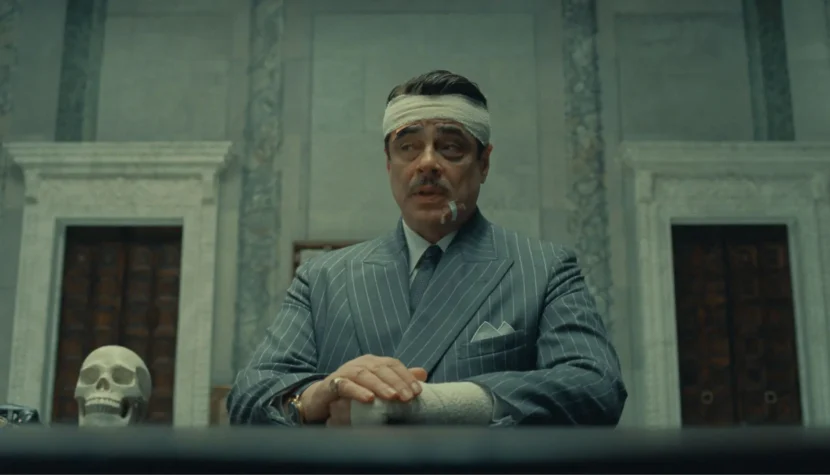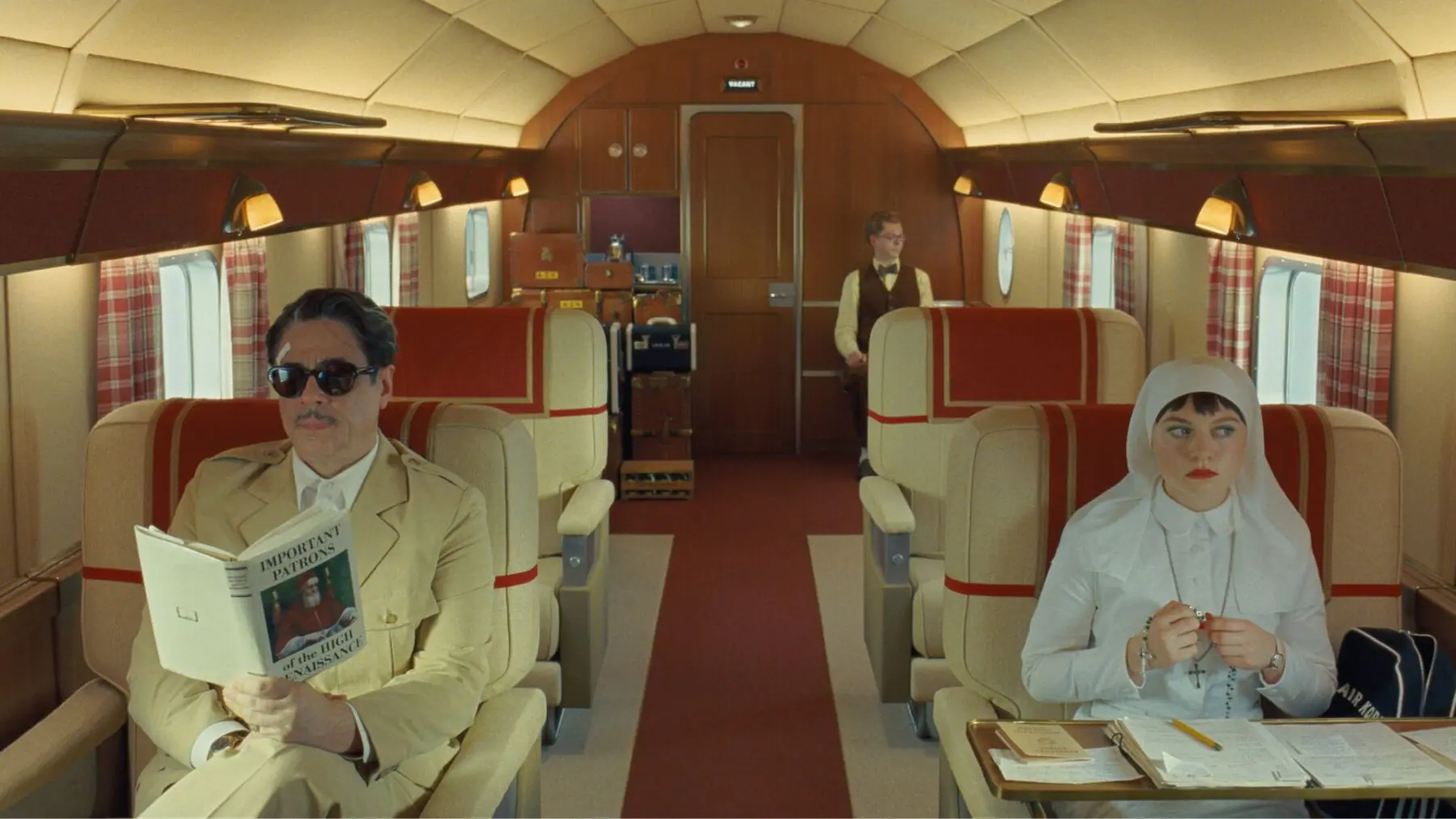THE PHOENICIAN SCHEME. Creative Stagnation [REVIEW]

Zsa-Zsa Korda (Benicio Del Toro) is a billionaire, con artist, entrepreneur, gangster, businessman, inventor—and God knows what else. He’s entered into a partnership with several equally powerful associates, planning a massive infrastructure investment project the likes of which the world has never seen. Underground railways, maritime transport, heavy industry—wonders and marvels. It’s all meant to revolutionize a world slowly recovering from the catastrophe of World War II. But stock market turmoil causes the project to become financially unsustainable, forcing Zsa-Zsa to meet with all the investors—and of course, to negotiate the most favorable terms for himself. Through deceit, trickery, coincidence—whatever works. Helping him in this is his daughter, Liesl (Mia Threapleton), a spiritual almost-nun, eagerly awaiting her ordination. Zsa-Zsa has specific plans for her too, and a vision for her future. With a bit of goodwill, The Phoenician Scheme can be seen as a story about real people—their worries and doubts, their spirituality, their strained or just-forming relationships. Central to it is the nonexistent family bond between Zsa-Zsa and Liesl. The girl reluctantly visits her father after six years, as their lifestyles and values are polar opposites. Experience (read: frequent assassination attempts) has taught Korda to trust no one completely, but deep down he feels it’s time to form a genuine connection with someone. His disastrous PR stunt of adopting nine boys is a clumsy expression of that same need.
Something stirs between the two—there’s an emotional dynamic—but as always with Wes Anderson, everything is seen as though through a telescope, covered with a filter, obscured by poses. Like a dollhouse, with preprogrammed, mechanical movements, where spontaneity is replaced by an unbearable algorithm.

The same goes for the heavenly visions and black-and-white interludes. Judgment Day looms over Korda, and each failed attempt on his life brings him closer to a final reckoning. Yet even here, the tone is dominated by jokes, exaggeration, satire, and Andersonian irony. Transcendence functions on the same faulty engine of absurdity—a void in pretty packaging, sprinkled with glitter, utterly exhausted by Anderson’s overuse.
The Phoenician Scheme has everything that got Wes Anderson noticed and beloved. But now, it’s for those very same reasons that he’s being rejected and forgotten. Every shot like a fashion catalog—yes, but in these poses and gestures there is no truth left. Pastel colors and mathematical composition—sure, but along with them, spontaneity and naturalism vanish. Two forces that make cinema captivating and immersive.
Big-name film stars in the credits? Yes, but under Anderson they’re pushed to the margins, delivering absurd lines like decorative afterthoughts. For laughs, for fun, tossed in without care.

Wes Anderson seemingly knows exactly what he’s doing—but sadly, he’s lost his way. The Phoenician Scheme is yet another example of the artistic stagnation of the Grand Budapest Hotel director. The paradox is that a film with such immense creative potential—from cinematography to costumes, set design, editing, and music—ends up as a portrait of creative laziness and a fear of embracing the limitless range of cinematic expression. The Phoenician Scheme is a closed circuit. A sandbox where only Wes Anderson seems to be having fun.

